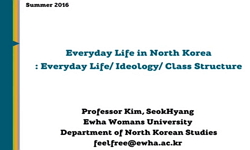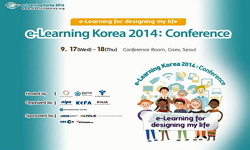BACKGROUND/OBJECTIVES: College students are in transition from adolescence to adulthood, and it has been reported that they show poor dietary habits. This study was conducted to compare body image perception, nutrition knowledge, dietary attitudes, di...
http://chineseinput.net/에서 pinyin(병음)방식으로 중국어를 변환할 수 있습니다.
변환된 중국어를 복사하여 사용하시면 됩니다.
- 中文 을 입력하시려면 zhongwen을 입력하시고 space를누르시면됩니다.
- 北京 을 입력하시려면 beijing을 입력하시고 space를 누르시면 됩니다.



Comparison of body image perception, nutrition knowledge, dietary attitudes, and dietary habits between Korean and Mongolian college students
한글로보기https://www.riss.kr/link?id=A105234915
-
저자
Zolzaya Erdenebileg (Inha University) ; So Hyun Park ; Kyung Ja Chang
- 발행기관
- 학술지명
- 권호사항
-
발행연도
2018
-
작성언어
English
- 주제어
-
등재정보
KCI등재,SCIE,SCOPUS
-
자료형태
학술저널
-
수록면
149-159(11쪽)
-
KCI 피인용횟수
1
- DOI식별코드
- 제공처
-
0
상세조회 -
0
다운로드
부가정보
다국어 초록 (Multilingual Abstract)
SUBJECTS/METHODS: Subjects were 314 KCS and 280 MCS. The data includes results of self-administered questionnaires; statistical analysis was performed using the SPSS 23.0 program.
RESULTS: With regards to body image perception, KCS perceived themselves to be fatter on current body image than ideal body image compared to MCS; 64.0% of KCS and 34.6% of MCS desired to be thinner. Total score of nutrition knowledge in KCS (17.0) was significantly higher compared to MCS (8.4) (P < 0.001), but total score of dietary attitudes in KCS (27.0) was significantly lower compared to MCS (31.2) (P < 0.001). Nutrition knowledge had a significantly positive correlation with dietary attitudes in MCS (P < 0.01). Meal consumption among male and female subjects was 2 and 3 times, respectively, in order in KCS, and 3 and 2 times, respectively, in order in MCS (P < 0.001). Rate of skipping breakfast in both genders was significantly higher in KCS than in MCS (male: P < 0.05, female: P < 0.001). In health-related lifestyles, KCS had a significantly higher rate in frequency of alcohol drinking (P < 0.001), exercise (P < 0.01), and mobile phone usage (P < 0.001), compared to MCS.
CONCLUSIONS: This study suggests that development of nutrition education program which is effective and proper is required to improve healthy dietary habits among college students of both countries. Essential contents should include acquirement of nutrition knowledge and a motivation for its application to actual life for KCS, and improvement of healthy dietary habits for MCS.
BACKGROUND/OBJECTIVES: College students are in transition from adolescence to adulthood, and it has been reported that they show poor dietary habits. This study was conducted to compare body image perception, nutrition knowledge, dietary attitudes, dietary habits, and health-related lifestyles between Korean college students (KCS) and Mongolian college students (MCS).
SUBJECTS/METHODS: Subjects were 314 KCS and 280 MCS. The data includes results of self-administered questionnaires; statistical analysis was performed using the SPSS 23.0 program.
RESULTS: With regards to body image perception, KCS perceived themselves to be fatter on current body image than ideal body image compared to MCS; 64.0% of KCS and 34.6% of MCS desired to be thinner. Total score of nutrition knowledge in KCS (17.0) was significantly higher compared to MCS (8.4) (P < 0.001), but total score of dietary attitudes in KCS (27.0) was significantly lower compared to MCS (31.2) (P < 0.001). Nutrition knowledge had a significantly positive correlation with dietary attitudes in MCS (P < 0.01). Meal consumption among male and female subjects was 2 and 3 times, respectively, in order in KCS, and 3 and 2 times, respectively, in order in MCS (P < 0.001). Rate of skipping breakfast in both genders was significantly higher in KCS than in MCS (male: P < 0.05, female: P < 0.001). In health-related lifestyles, KCS had a significantly higher rate in frequency of alcohol drinking (P < 0.001), exercise (P < 0.01), and mobile phone usage (P < 0.001), compared to MCS.
CONCLUSIONS: This study suggests that development of nutrition education program which is effective and proper is required to improve healthy dietary habits among college students of both countries. Essential contents should include acquirement of nutrition knowledge and a motivation for its application to actual life for KCS, and improvement of healthy dietary habits for MCS.
목차 (Table of Contents)
- INTRODUCTION
- SUBJECTS AND METHODS
- RESULTS
- DISCUSSION
- REFERENCES
- INTRODUCTION
- SUBJECTS AND METHODS
- RESULTS
- DISCUSSION
- REFERENCES
참고문헌 (Reference)
1 이영미, "한국과 중국 일부 지역 대학생의 비만 체형 인지도 및 식생활 비교" 대한지역사회영양학회 18 (18): 25-44, 2013
2 구어슈천, "한국과 중국 대학생의 영양지식, 식행동 및 식품영양 표시 확인 행동에 관한 비교 연구" 동아시아식생활학회 25 (25): 942-951, 2015
3 박재경, "한국과 일본 여대생의 실제체형과 인지체형 및 신체만족도에 관한 비교" 한국의류학회 28 (28): 758-766, 2004
4 이재영, "한국과 몽골의 경제협력: 성과와 전략적 과제" 한국몽골학회 (42) : 187-216, 2015
5 주은정, "한국 전주와 중국 지난 여고생의 식행동, 영양 지식, 체중 인식 비교 연구" 한국생활과학회 25 (25): 121-135, 2016
6 송려, "한ㆍ중 여대생들의 식생활과 체중조절 행동 비교 연구" 한국지역사회생활과학회 26 (26): 761-774, 2015
7 김미옥, "한·일 여대생들의 비만에 대한 인식 및 생활패턴 비교" 한국식품영양과학회 39 (39): 699-708, 2010
8 이수경, "여자 중학생의 신체성장에 따른 신체이미지 및 자기존중감, 의복태도 형성모델" 한국의류학회 29 (29): 438-448, 2005
9 김완석, "동아시아 여대생들의 신체가치관과 신체존중감: 한국, 중국, 일본의 비교" 한국문화및사회문제심리학회 13 (13): 113-134, 2007
10 장희순, "대중매체 노출이 신체상(身體像) 지각과 상태 신체 존중감에 미치는 영향" 한국청소년정책연구원 17 (17): 57-83, 2006
1 이영미, "한국과 중국 일부 지역 대학생의 비만 체형 인지도 및 식생활 비교" 대한지역사회영양학회 18 (18): 25-44, 2013
2 구어슈천, "한국과 중국 대학생의 영양지식, 식행동 및 식품영양 표시 확인 행동에 관한 비교 연구" 동아시아식생활학회 25 (25): 942-951, 2015
3 박재경, "한국과 일본 여대생의 실제체형과 인지체형 및 신체만족도에 관한 비교" 한국의류학회 28 (28): 758-766, 2004
4 이재영, "한국과 몽골의 경제협력: 성과와 전략적 과제" 한국몽골학회 (42) : 187-216, 2015
5 주은정, "한국 전주와 중국 지난 여고생의 식행동, 영양 지식, 체중 인식 비교 연구" 한국생활과학회 25 (25): 121-135, 2016
6 송려, "한ㆍ중 여대생들의 식생활과 체중조절 행동 비교 연구" 한국지역사회생활과학회 26 (26): 761-774, 2015
7 김미옥, "한·일 여대생들의 비만에 대한 인식 및 생활패턴 비교" 한국식품영양과학회 39 (39): 699-708, 2010
8 이수경, "여자 중학생의 신체성장에 따른 신체이미지 및 자기존중감, 의복태도 형성모델" 한국의류학회 29 (29): 438-448, 2005
9 김완석, "동아시아 여대생들의 신체가치관과 신체존중감: 한국, 중국, 일본의 비교" 한국문화및사회문제심리학회 13 (13): 113-134, 2007
10 장희순, "대중매체 노출이 신체상(身體像) 지각과 상태 신체 존중감에 미치는 영향" 한국청소년정책연구원 17 (17): 57-83, 2006
11 최숙희, "간호여대생의 자아존중감, 식이 자기효능감, 생활스트레스가 식행동에 미치는 영향" 한국산학기술학회 18 (18): 366-374, 2017
12 Pingali P, "Westernization of Asian diets and the transformation of food systems: implications for research and policy" 32 : 281-298, 2006
13 Chapman CD, "Watching TV and food intake: the role of content" 9 : e100602-, 2014
14 Embassy of the Republic of Korea in Mongolia, "Tobacco production in Mongolia, smoking rates and key regulations" Embassy of the Republic of Korea in Mongolia
15 Minister of Health and Sports (MN), "Third national STEPS Survey on the prevalence of noncommunicable disease and injury risk factors-2013" Minister of Health And Sports
16 Yonhapnews (KR), "The world's smartphone penetration surpassed the first 50% ... Korea 85%" Yonhapnews
17 Curran PJ, "The robustness of test statistics to nonnormality and specification error in confirmatory factor analysis" 1 : 16-29, 1996
18 Brown C, "The information trail of the 'Freshman 15'--a systematic review of a health myth within the research and popular literature" 25 : 1-12, 2008
19 Babbie ER, "The Basics of Social Research" Cengage Learning 2007
20 World Health Organization Western Pacific Region, "The Asia-Pacific Perspective: Redefining Obesity and Its treatment"
21 Wholistic Interest Through Health (KR), "Sung Keun Haigu State Health Center 'Nutrition Education Center' handover ceremony" Wholistic Interest Through Health
22 The Korean Labor Economic Association, "Study on Strengthening Cooperation in Employment Labor Sector between Korea and Mongolia" Ministry of Employment and Labor 2017
23 Wholistic Interest Through Health (KR), "School lunch project in Mongolia" Wholistic Interest Through Health
24 Campo S, "Placing the burden on the individual: overweight and obesity in African American and mainstream women's magazines" 22 : 229-240, 2007
25 YTN (KR), "People who drinks alcohol are being problem more than alcohol consumption" YTN
26 Stunkard A, "Old and new scales for the assessment of body image" 90 : 930-, 2000
27 Park YS, "Nutrition Education & Counseling. 5th ed." Kyomunsa 2013
28 Ambrosi-Randic N, "Nine, seven, five, or three: how many figures do we need for assessing body image?" 100 : 488-492, 2005
29 Amarsanaa N, "Mongolian telecommunication equipment market growth" KOTRA
30 Embassy of the Republic of Korea in Mongolia, "Mongolian press articles (10.10)" Embassy of the Republic of Korea in Mongolia
31 HuffingtonPostKorea, "Korean male smoking rate tops 30% for the first time" HuffingtonPostKorea
32 Korea Foundation for International Culture Exchange, "Korean food culture spreading to Mongolia" Korea Foundation for International Culture Exchange
33 Shin YH, "Korean Cultural Wave in East Asia" Jeonyewon 2006
34 Beaudry KM, "Identifying changes in body weight, composition and dietary intake during first-year university" 31 : 957-, 2017
35 Oranisation for Economic Co-operation and Development, "Health at a Glance: Asia/Pacific 2014: Measuring Progress towards Universal Health Coverage" OECD Publishing 2014
36 Nelson MC, "Emerging adulthood and college-aged youth: an overlooked age for weight-related behavior change" 16 : 2205-2211, 2008
37 Hilger J, "Eating behaviour of university students in Germany: dietary intake, barriers to healthy eating and changes in eating behaviour since the time of matriculation" 109 : 100-107, 2017
38 Lum C, "Differences in the drinking behaviors of Chinese, Filipino, Korean, and Vietnamese college students" 70 : 568-574, 2009
39 Laska MN, "Dietary patterns and home food availability during emerging adulthood: do they differ by living situation?" 13 : 222-228, 2010
40 Poobalan AS, "Diet behaviour among young people in transition to adulthood (18-25 year olds): a mixed method study" 2 : 909-928, 2014
41 namu. wiki, "Developed country" namu.wiki
42 Kim MY, "Comparison of nutrient criteria of school lunch programs in Korea, Japan, and Taiwan" The East Asian Society of Dietary Life 195-, 2015
43 Hyun H, "Body image, weight management behavior, nutritional knowledge and dietary habits in high school boys in Korea and China" 26 : 923-930, 2017
44 Yoon CH, "Analysis of health status and health behavior among school children in Mongolia" Yonsei University 2009
45 Yang SG, "Analysis of School Meal Program in Korea in OECD Countries" Korean Educational Development Institute 2010
46 Jang SH, "An investigation into dietary habit and food preference by university student's nutrition knowledge" Konkuk University 2010
47 Jo HJ, "A study of drinking behaviors according to diet and nutritional knowledge of university students" Inje University 2011
48 손수완, "A comparative study on dietary behavior, nutritional knowledge and life stress between Korean and Chinese female high school students" 한국영양학회 8 (8): 205-212, 2014
49 Sakamaki R, "A comparative study of food habits and body shape perception of university students in Japan and Korea" 4 : 31-, 2005
동일학술지(권/호) 다른 논문
-
- 한국영양학회
- In Sil Huh
- 2018
- KCI등재,SCIE,SCOPUS
-
- 한국영양학회
- Jung Eun Oh
- 2018
- KCI등재,SCIE,SCOPUS
-
- 한국영양학회
- Sung Hee Kim
- 2018
- KCI등재,SCIE,SCOPUS
-
- 한국영양학회
- Angela M. Rose
- 2018
- KCI등재,SCIE,SCOPUS
분석정보
인용정보 인용지수 설명보기
학술지 이력
| 연월일 | 이력구분 | 이력상세 | 등재구분 |
|---|---|---|---|
| 2023 | 평가예정 | 해외DB학술지평가 신청대상 (해외등재 학술지 평가) | |
| 2020-01-01 | 평가 | 등재학술지 유지 (해외등재 학술지 평가) |  |
| 2010-01-01 | 평가 | 등재학술지 유지 (등재유지) |  |
| 2008-01-25 | 학술지등록 | 한글명 : Nutrition Research and Practice외국어명 : Nutrition Research and Practice |  |
| 2008-01-01 | 평가 | 등재학술지 유지 (등재유지) |  |
| 2006-01-01 | 평가 | 등재학술지 선정 (등재후보2차) |  |
| 2005-01-01 | 평가 | 등재후보 1차 PASS (등재후보1차) |  |
| 2003-01-01 | 평가 | 등재후보학술지 선정 (신규평가) |  |
학술지 인용정보
| 기준연도 | WOS-KCI 통합IF(2년) | KCIF(2년) | KCIF(3년) |
|---|---|---|---|
| 2016 | 1.83 | 0.43 | 1.45 |
| KCIF(4년) | KCIF(5년) | 중심성지수(3년) | 즉시성지수 |
| 1.21 | 1.05 | 0.727 | 0.15 |




 ScienceON
ScienceON DBpia
DBpia






